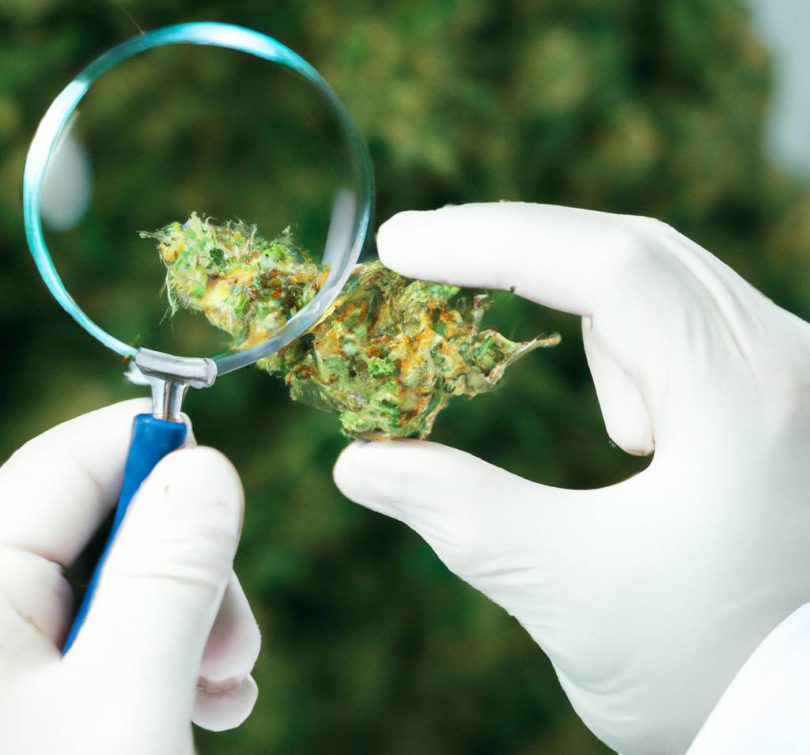THCA is the form THC takes in nature, but when it’s heated and reaches the temperature of 145 degrees Celsius, THCA is decarboxylated and transforms into THC.[1] Though THCA is a precursor to THC, there are some remarkable differences between the two cannabinoids. Thanks to legal blockades, THC research has been limited for years, but now it has become a massive topic for various research projects. For THCA, though, the research is only just beginning. The question becomes, how much do we know about THCA, and what are the possible benefits that scientists have identified?
Differences Between THCA and THC
THC is the most famous cannabinoid because it is the primarily psychoactive ingredient in cannabis. THCA, on the other hand, does not hold the same psychotropic effects. This is due to the primary molecular difference between the two. THCA has an additional carboxyl group that is separated when metabolizing into THC.[2] This means that THCA is unable to bond to CB1 receptors the way THC can because of its size, and therefore doesn’t interact with the endocannabinoid system at all. Though THCA lacks the aspect that makes THC so famous, it does not mean that it is completely free of side effects.
Neurological Benefits of THCA
There have been several studies conducted into the medical benefits that THCA can provide, and the list is extensive. First, though it is not psychoactive, THCA does have an effect on individuals’ brains. There is corollary evidence that suggests THCA may be used to treat a variety of neurodegenerative disorders, including Parkinson’s disease, Alzheimer’s disease, and multiple sclerosis.[3][4][5] In a more general sense, THCA has been shown to have some neuroprotective qualities, meaning it may be beneficial for individuals even if they haven’t been diagnosed with the other neurological disorders.[6] So while THCA doesn’t affect the brain the same way THC does, it may actually provide more benefits without the costs of inebriation.
Physical Benefits of THCA
In addition to the neurological side effects, there are several physical reactions to THCA as well. Like THC, THCA has been shown to increase appetites.[7] This may not sound like a benefit to some, but for those suffering from cachexia, anorexia, or are undergoing chemotherapy this may provide a welcome relief. Speaking of cancer, there is some initial research that suggests THCA may be beneficial in shrinking multiple tumor types.[8] Ultimately, if THCA can provide relief for even half of the medical conditions listed in this article, it may prove to be a more beneficial cannabinoid than its derivative THC.
Reference List
-
Wang M, Wang YH, Avula B, Radwan MM, Wanas AS, van Antwerp J, Parcher JF, ElSohly MA, Khan IA. Decarboxylation Study of Acidic Cannabinoids: A Novel Approach Using Ultra-High-Performance Supercritical Fluid Chromatography/Photodiode Array-Mass Spectrometry. Cannabis Cannabinoid Res. 2016 Dec 1;1(1):262-271. doi: 10.1089/can.2016.0020. PMID: 28861498; PMCID: PMC5549281.
-
Shoyama, Y., Tamada, T., Kurihara, K., Takeuchi, A., Taura, F., Arai, S., Blaber, M., Shoyama, Y., Morimoto, S., & Kuroki, R. (2012). Structure and Function of ∆1-Tetrahydrocannabinolic Acid (THCA) Synthase, the Enzyme Controlling the Psychoactivity of Cannabis sativa. Journal of Molecular Biology, 423(1), 96–105. https://doi.org/10.1016/j.jmb.
2012.06.030 -
Forés-Martos, Jaume, et al. “Transcriptomic and genetic associations between Alzheimer’s disease, Parkinson’s disease, and cancer.” Cancers 13.12 (2021): 2990.
-
Nadal, X., del Río, C., Casano, S., Palomares, B., Ferreiro-Vera, C., Navarrete, C., Sánchez-Carnerero, C., Cantarero, I., Bellido, M. L., Meyer, S., Morello, G., Appendino, G., & Muñoz, E. (2017). Tetrahydrocannabinolic acid is a potent PPARγ agonist with neuroprotective activity. British Journal of Pharmacology, 174(23), 4263–4276. https://doi.org/10.1111/bph.
14019 -
Barnes, M. P. (2006). Sativex®: clinical efficacy and tolerability in the treatment of symptoms of multiple sclerosis and neuropathic pain. Expert Opinion on Pharmacotherapy, 7(5), 607–615. https://doi.org/10.1517/
14656566.7.5.607 -
Stone, Nicole L., et al. “A systematic review of minor phytocannabinoids with promising neuroprotective potential.” British Journal of Pharmacology 177.19 (2020): 4330-4352.
-
Blundell, Renald, and Andrea Weronika Gieleta. “Is cannabis a miracle plant?.” (2022).
-
Wang, J., Song, Z., Ren, L., Zhang, B., Zhang, Y., Yang, X., Liu, T., Gu, Y., & Feng, C. (2022). Pan‑cancer analysis supports MAPK12 as a potential prognostic and immunotherapeutic target in multiple tumor types, including in THCA. Oncology Letters, 24(6). https://doi.org/10.3892/ol.
2022.13565








